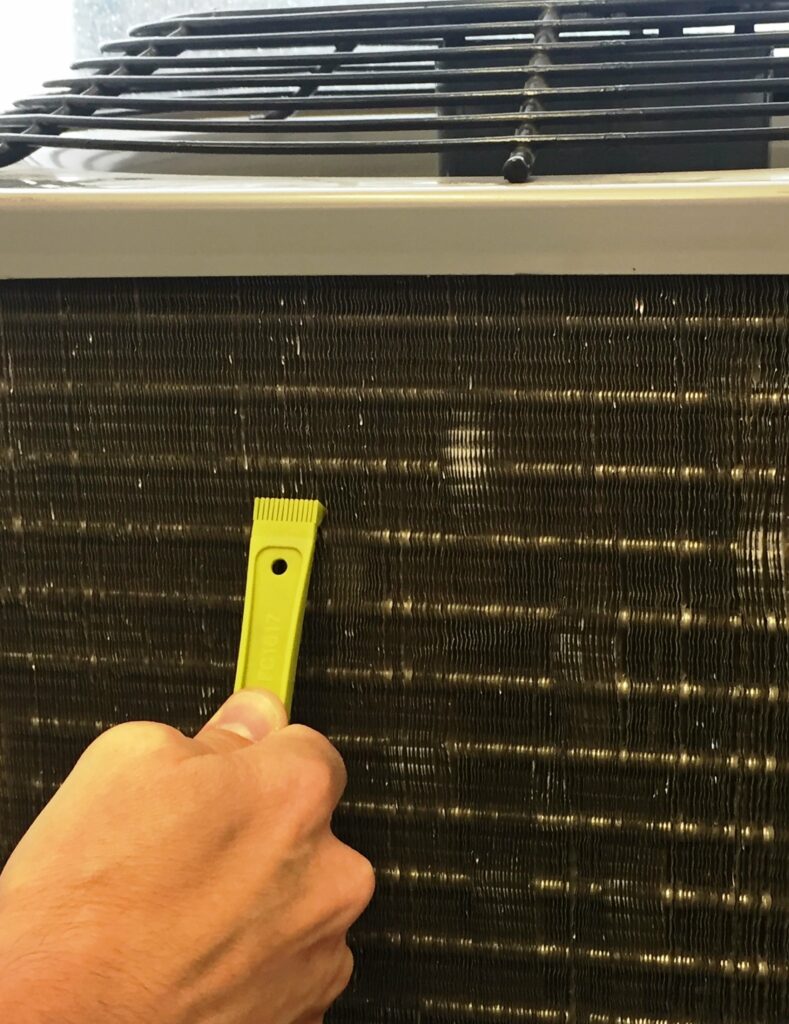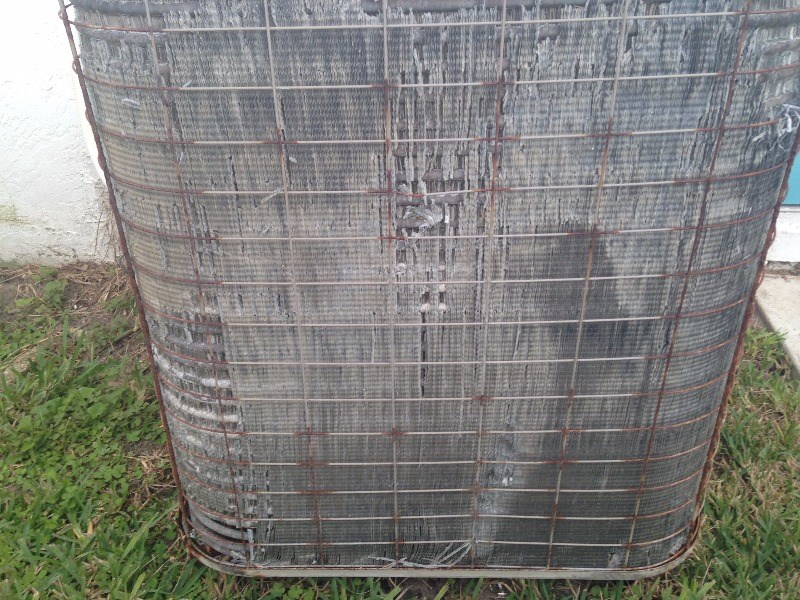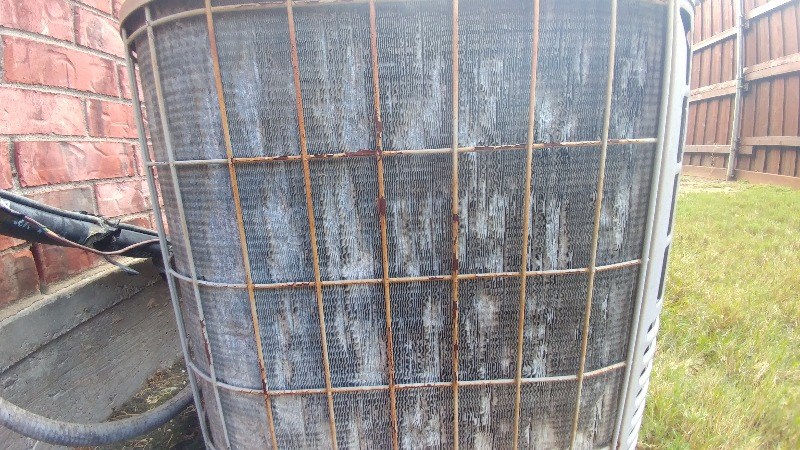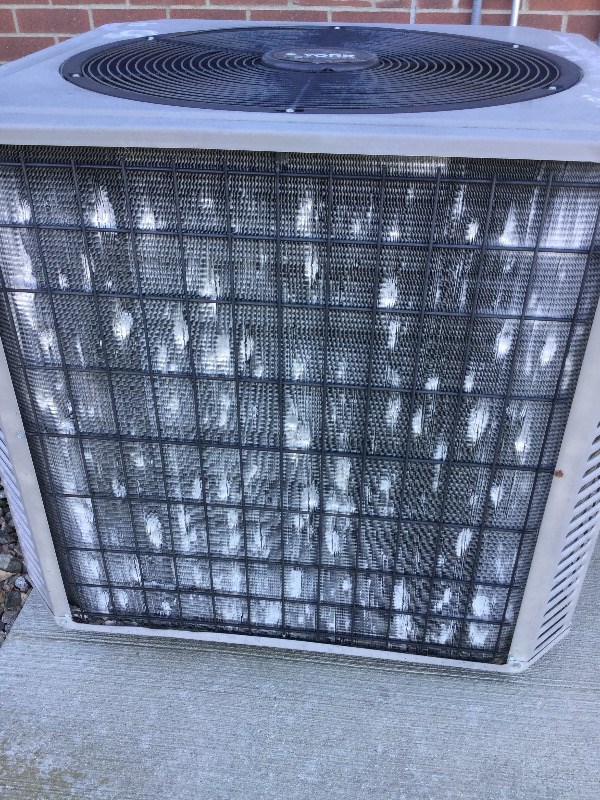The Effect of Corrosion on Repairing Hail Damaged HVAC Coils
The following article on “Corrosion and Hail-Damaged HVAC Coil Repairs”, written by Matt Livingston of HVAC Investigators, originally appeared on Property Casualty 360.
Wind and hail losses are the most frequently claimed homeowner’s insurance peril, causing approximately $1 billion in damages each year (III). HVAC systems, particularly condensing units and package units, have a high risk of hail damage. These systems, which sit outside either on the ground or the roof, contain a condenser coil constructed of copper tubing covered in a layer of malleable aluminum fins that facilitate heat transfer from the refrigerant to the surrounding air. When hail (or any other foreign object) strikes the coil, these fins can be bent and flattened, eventually reducing the ability for the coil to transfer heat efficiently.
Get Your Free Copy: 4 Things to Look for When Assessing Hail Damaged HVAC Systems
To return the unit to pre-loss condition, the coil should be restored to its original state before the hail occurred. The most common repair option for this kind of damage is to straighten the coil fins using a fin-combing tool (provided that the fins were not torn as a result of the damage). However, if the aluminum fins are in a corroded state, they may be too brittle to be properly straightened.
Hail damaged condenser coils can often be straightened using a fin combing tool
Corrosion of the coil
Although aluminum is ideal for outdoor applications, like any metal exposed to the elements, a condenser coil is susceptible to long-term corrosion. As corrosion begins to deteriorate the composition of the condenser coil, it weakens its integrity, making the fins difficult to straighten through traditional methods. Certain conditions accelerate the corrosion of an outdoor coil, and may include the following:
Proximity to Saltwater
When saltwater comes in contact with the metals of a condenser coil, corrosion will be accelerated and pitting will likely occur. This air-borne saltwater can be carried by spray, mist, rain or fog, and can impact systems located more than 5 miles from the coast. Once the coil has begun to corrode (which can happen very quickly in a harsh coastal environment) the coil’s ability to be easily combed will be impeded.
The harsh coastal environment caused the severe corrosion of this condenser coil
Industrial and Urban Areas
During the combustion of coal and fuel oils, sulfur and nitrogen oxides are released. These atmospheric emissions are frequently found in both industrial and urban environments. The particles of these oxides are highly corrosive when they combine with oxygen, water, or high humidity conditions, which can lead to corrosion of the metals exposed to these harsh environments. The common placement of HVAC equipment near these emission sites further exacerbates the issue.
Read More: Hail Damage to HVAC Condenser Coils
Bi-Metal Coil Construction
Galvanic (or bi-metal) corrosion occurs when dissimilar metals come in contact with one another and an electrolyte (such as water). When this condition exists (which it frequently does, due to common coil construction and their outdoor placement), corrosion will be accelerated in the “less noble” of the two metals. Because the aluminum fins in the condenser coil are less noble than the copper tubing contained within, and the coil is frequently wet, electrons freely flow away from the aluminum to the copper, causing the aluminum to degrade over time.
A hail damaged condenser coil that required replacement because the corroded fins were too brittle to straighten
Get Your Free Copy: HVAC Hail Damage Repair Hierarchy
Sprinkler Systems
Water that has a low pH value, low alkalinity, or contains total dissolved solids such as inorganic salts, can accelerate condenser coil corrosion. When untreated water (most often, well water) is used in lawn sprinkler systems, its effect on exposed metal surfaces could be problematic. Condenser coils that are in the path of sprinkler systems using untreated water are subject to the potential of accelerated corrosion.
Although this system sustained minor hail damage, it was in the path of a sprinkler system, which corroded the coils and rendered them too brittle to be straightened
Cleaning Agents
Many condenser coil cleaning agents contain sodium hydroxide and are highly caustic. If these agents are not thoroughly rinsed (with neutral pH water) after cleaning the coil, they can deteriorate the aluminum fins quickly. Certain household cleaners, such as bleach, vinegar, and hydrochloric acid are corrosive to aluminum and should not be used. Moreover, some cleaning agents which may be suitable for aluminum may not be advised for copper, thus, both metals must be taken into consideration when choosing the appropriate agent.
Corrosion Prevention
Protective coatings may prevent or slow coil corrosion in high-risk areas. For this reason, condenser coil coatings have become a popular choice for HVAC equipment manufacturers and maintenance organizations. Coatings can be applied by the manufacturer during production or by a service technician after the system has been installed.
The coil coating that is applied in the factory is dipped and baked on, so that the application is even and covers the entire coil. If the coating is applied in the field, the coating is likely to be less evenly applied and therefore, less effective. If the field-based coating is too thick, the coil’s fins may be difficult to straighten after hail damage. And because the entire coil may not be coated, corrosion can still occur. Finally, if the coil is not properly cleaned before the coating is applied (or if it is coated after corrosion has already begun), the full benefit of corrosion prevention will not be realized.
Conclusion
While aluminum is ideal for HVAC condenser coil construction, due to its natural corrosion prevention characteristics, no metal is completely immune from corrosion. Insurance professionals would be wise to understand the factors that contribute to coil corrosion, and the steps that can be taken to mitigate its impact on HVAC claim settlement options.





